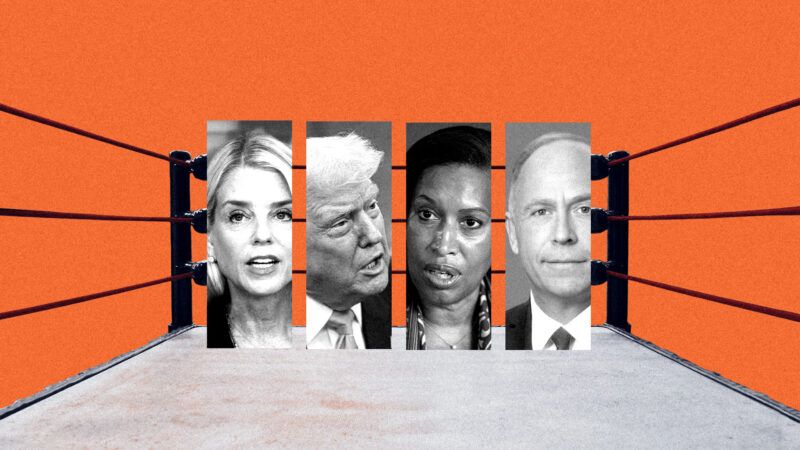D.C. Sues Pam Bondi and the Trump Administration for Replacing Police Commissioner
The latest escalation in the showdown between the Trump administration and D.C. elected officials

On Friday, Washington, D.C., Attorney General Brian Schwalb initiated a lawsuit against President Donald Trump and members of his administration. The lawsuit challenges U.S. Attorney General Pam Bondi's Thursday order, which nullified the city's sanctuary city policies and named Terry Cole, the head of the Drug Enforcement Administration, as D.C.'s "emergency police commissioner," replacing current Metropolitan Police Department (MPD) Chief Pamela Smith.
The order also rescinded any previously issued directives by Smith related to MPD policy on immigration enforcement, directed the MPD to enforce local statutes on public space occupancy and demonstrations, and required all MPD leadership to obtain Cole's approval on policy decisions moving forward.
On Monday, Trump issued an executive order invoking Section 740 of the Home Rule Act, which grants the president the authority to place the MPD under federal control in the event of a declared emergency. The president also appointed Cole as the "interim commissioner of MPD." At the same time, Bondi stated that Gadyaces Serralta, the director of the U.S. Marshals Service, would be "supervising command and control" of "the entire operation" of the MPD.
Schwalb is seeking a declaration from the U.S. District Court for the District of Columbia that the president's executive order and, therefore, Bondi's order, violate the Home Rule Act and the Constitution by usurping Congress's "exclusive constitutional authority" over D.C. The lawsuit also requests that the court restore control of the MPD to the mayor and the chief of police. Schwalb is also seeking an emergency restraining order, and a hearing is scheduled for Friday afternoon, according to The Washington Post.
Reason reached out to the Justice Department but was referred to Bondi's order for comment.
Passed by Congress in 1973, the Home Rule Act empowers D.C. residents to elect their local government, including a mayor and a city council; however, Congress retains ultimate legislative authority, which allows it to review and overturn local laws.
Section 740 authority expires within 30 days or when the emergency concludes, whichever comes first, unless extended by Congress. The president has already signaled his intent to apply for an extension, telling reporters on Wednesday that he would be "asking for extensions on that—long-term extensions, because you can't have 30 days," according to The Washington Post.
Congress is not constitutionally obligated to provide D.C. with a locally elected government, nor is it prevented from delegating its authority over the city to such a government. Still, it remains unclear if the executive branch can remove D.C.'s legally elected representatives without congressional approval.
Presidents and Congress have previously sought to reshape the governing body of the nation's capital. President Lyndon B. Johnson reorganized D.C.'s government in 1967, creating a nine-member council and a single commissioner, all of whom were appointed by the president. In 1995, Congress established a control board to oversee D.C. finances and didn't return control to the elected government until 1999. It finally suspended the control board's operations in 2001.
However, like many actions under Trump, invoking Section 740 authority is unprecedented and marks the first time a president has done so. It continues the administration's trend of militarizing domestic law enforcement operations to accomplish its policy goals and punish political enemies in the process.
